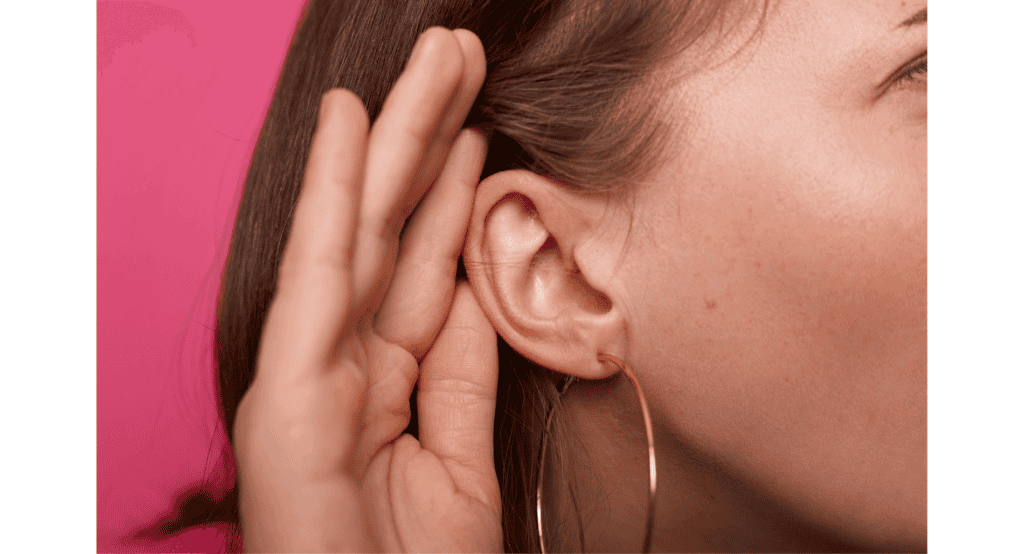Hearing loss is often associated with aging, but it can also affect individuals at any stage of life, including teenagers. Identifying and addressing hearing loss in teens is important for their overall well-being, academic performance, and social interactions.
Signs of Hearing Loss in Teens
Hearing loss in teenagers can manifest in various ways. As a parent, be on the lookout for potential signs, which may include:
- Difficulty following conversations: Teens with hearing loss may struggle to understand and follow conversations, especially in noisy environments or group settings.
- Frequently asking for repetition: If a teenager frequently asks others to repeat what they’ve said, it could be a sign of hearing difficulty.
- Turning up the volume: If a teen consistently listens to music or watches TV at a high volume, it might indicate that they are compensating for hearing loss.
- Avoiding social situations: Teens with hearing loss might withdraw from social activities or avoid gatherings where communication and listening are essential.
- Academic struggles: Hearing loss can affect a teen’s ability to follow instructions, participate in classroom discussions, and perform well in academic settings.
- Complaints of ear pain or ringing: If a teenager reports ear pain, discomfort, or ringing in the ears, it could be a symptom of an underlying hearing issue.
Potential Causes of Teen Hearing Loss
Understanding the potential causes of hearing loss in teenagers can help in early recognition and intervention. Common causes of teen hearing loss include:
- Exposure to loud noise: Prolonged exposure to loud music, concerts, or recreational activities with high noise levels can lead to noise-induced hearing loss in teenagers.
- Ear infections: Chronic or untreated ear infections can result in temporary or permanent hearing loss in teens.
- Genetic factors: Some teens may inherit genetic conditions or predispositions that make them more susceptible to hearing loss.
- Medication side effects: Certain medications can have ototoxic effects, potentially leading to hearing problems in teenagers.
- Trauma or injury: Head injuries or trauma to the ear can result in hearing loss in teens.
- Undiagnosed congenital issues: Some teens may have undiagnosed hearing issues present since birth that become more apparent as they grow older.
Steps to Address Teen Hearing Loss
If you suspect that your teen may be experiencing hearing difficulties, consider the following steps to identify and address their hearing loss:
- Encourage open communication: Create a supportive environment where your teen feels comfortable expressing any concerns about their hearing. Encourage open dialogue about any difficulties they may be experiencing.
- Schedule a hearing evaluation: Work with a healthcare professional to schedule a comprehensive hearing evaluation. This can identify any potential hearing loss.
- Explore treatment options: If hearing loss is identified, discuss potential treatment options with your hearing health specialist. This may include hearing aids, assistive listening devices, or other interventions to improve your teen’s hearing ability.
- Educate about noise protection: Provide education about the importance of protecting their hearing from loud noises. Discuss the potential risks of excessive noise exposure and encourage the use of ear protection in situations with high noise levels.
- Collaborate with educators: If the teenager is struggling academically due to hearing loss, work closely with their teachers and school administrators to implement accommodations and support services.
Supporting Teens with Hearing Loss
In addition to addressing the immediate concerns related to hearing loss, you can provide ongoing support to your teen to help them navigate their hearing health:
- Promote self-advocacy: Encourage your teenager to be their own advocate. Teach them to communicate their needs in various situations and ask for accommodations or support when needed.
- Encourage regular check-ups: Schedule regular follow-up appointments to monitor and manage your teenager’s hearing health. Regular evaluations can help track any changes in their hearing and adjust treatment as needed.
- Facilitate peer support: Connect your teen to peer support groups or online communities where they can interact with and seek guidance from their peers facing similar challenges.
- Provide access to resources: Offer access to educational materials, online resources, and organizations supporting teens with hearing loss. These resources can provide valuable information and a sense of community for you and your teen.
Book a Hearing Test for Your Teen
Do you think your teenager may have hearing loss? Book a hearing test to find out more. We’ll identify any hearing loss, and help you and your teen find the right treatment options.





